
Born in Kansas City, Leslie Feinberg was raised in a working-class, Jewish home and realized early on that ze was what we would now call gender fluid. Feinberg identified as lesbian and trans, experiencing decades of violence and rejection from peers, family, the police, and even some feminists because of a physical appearance and self that confounded gender norms. But Feinberg also found a home in blue-collar communities, where ze developed a worldview based on radical resistance to all injustice everywhere. Hir journey is fictionalized in a classic 1993 novel, Stone Butch Blues.
But Feinberg also represents a vital convergence between queer liberation and Communism. In the mid-1970s, ze attended a demonstration on behalf of dispossessed Palestinians and met members of the Workers World Party, a revolutionary Marxist-Leninist Communist faction. Membership in the WWP and a life partnership with poet and essayist Minnie Bruce Pratt defined the rest of Feinberg’s life as an activist and citizen.
A deeply gentle and compassionate soul, for fifteen years, Feinberg wrote a column, “Lavender and Red,” for the Workers World, the newspaper of the WWP, and in 1995 became managing editor of the paper. But hir commitment to revolution never wavered. Shortly before Feinberg’s death in November 2014, Leslie and I had a Facebook exchange in which I referred to hir as a “socialist.” Ze was horrified and corrected me instantly: “Claire,” ze responded, “I am a revolutionary Communist!”
Surprised? You shouldn’t be. Communism is an old tradition among queer people, and if what remains of the Communist Party today were being honest, being queer is an old tradition among Communists. In the first years after the Russian Revolution, sexual liberation was the rule, not the exception. But after Josef Stalin became General Secretary of the Communist Party of the Soviet Union in 1922, things changed. By the 1930s, the word went out around the world: homosexuals undermined the principal foundation for the world revolution, the Communist family. Gays and lesbians, the CPUSA proclaimed, were not just a security risk because they could be blackmailed, a position that would, ironically, also be adopted by the United States government in 1947. They were degenerates on par with drug addicts, alcoholics, and criminals. That edict lasted, enforced by the occasional investigation and purge of members, until the early 1980s.
And yet, undeterred, radical gays and lesbians in the United States joined the party anyway, inspired by its global vision, and its solidarity with working people, African Americans suffering under Jim Crow, immigrants, and the poor. And as long as they disguised their private lives and pretended to be heterosexual, sometimes through marriages of convenience, they got to plunge into the work that moved them most, hoping perhaps that one day, their own liberation would be on the agenda too.
Not surprisingly, by the time queer liberation arrived in the 1960s, many activists had cut their political teeth on Communist Party organizing. They jumped in to make their own revolution, one that we celebrate every June. This is why I asked Bettina Aptheker, a Distinguished Professor of Feminist Studies at the University of California-Santa Cruz, to talk to us about her new book, Communists in Closets: Queering the History, 1930s-1990s, out last fall from Routledge Press. In it, Aptheker sketches the hidden history of queer Communism, illustrated with capsule biographies of some of the party’s most distinguished gay and lesbian activists—as well as her own decision to first hide her sexuality and then, inspired by finding the love of her life and supported by a robust feminist community, leave the party to live openly as a lesbian.
Program notes:
The clip of Leslie Feinberg speaking about solidarity is from a talk ze gave at California State University-Sonoma on April 26, 2008.
You can read Leslie Feinberg’s Stone Butch Blues here.
Interested in the Workers World Party? Check it out!
Bettina namechecks historian Aaron Lecklider: Aaron is the author of Love's Next Meeting: The Forgotten History of Homosexuality and the Left in American Culture, (University of California Press, 2021).
Claire mentions Bettina’s father, the historian Herbert Aptheker. You can read a biography of this pioneering political rebel and committed anti-racist in Gary Murrell and Bettina Aptheker, “The Most Dangerous Communist in the United States”: A Biography of Herbert Aptheker (University of Mssachusetts Press, 2015).
Bettina also mentions that she was inspired by Jonathan Ned Katz, who gre up in a Communist family, is the author of the first comprehensive history of gays, lesbians, and trans people in the United States, and was an organizer of a Marxist study group that became a key intellectual influence on the emerging field of LGBT history. You can learn more about Jonathan and his work here.
Claire and Bettina discuss Mattachine Society founder Harry Hay: you can read about Hay’s evolving philosophy of sexual and political liberation in a collection of his writings edited by Will Roscoe, Radically Gay: Gay Liberation in the Words of Its Founder (Beacon Press, 1997).
You can download this podcast here or subscribe for free on Apple iTunes, Spotify, Google Podcasts, or Soundcloud. And if you liked this episode, please join us!

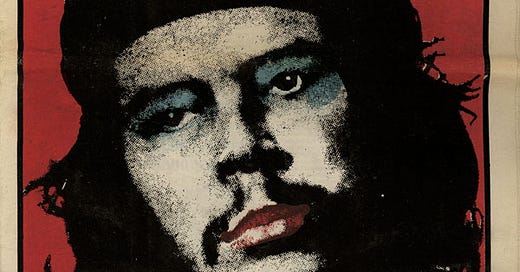




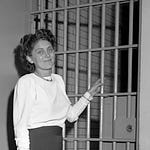
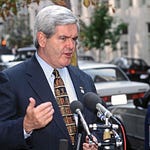


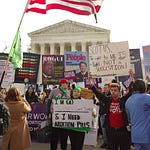
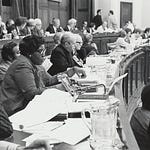

Share this post